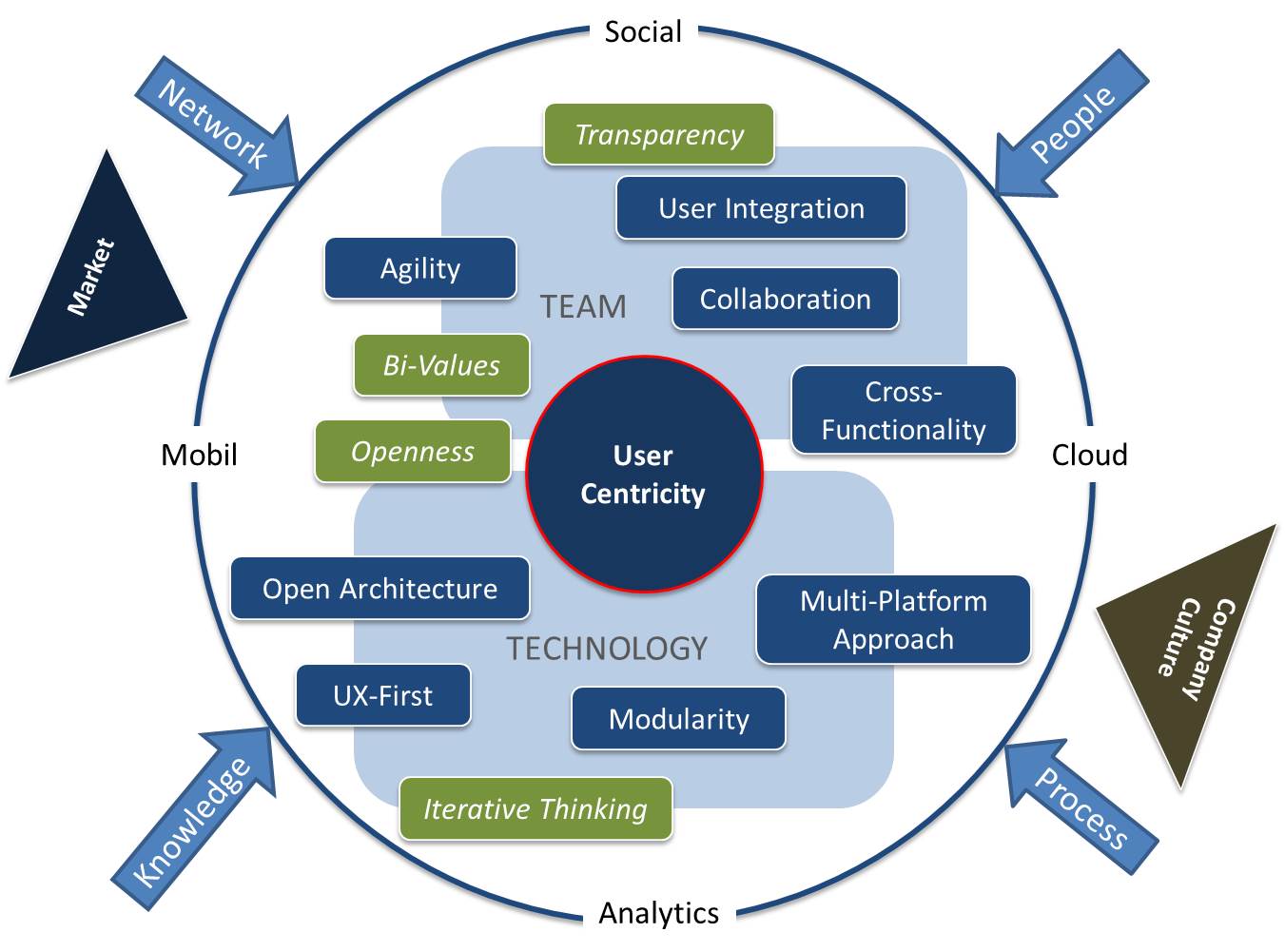Digital product transformation is one of the biggest challenges for any company with a Web related business model. No matter how established and successful a company and its digital products and services are, it is crucial to implement rethinking as part of the daily routine. Transformation is based on radical innovations followed by a disruptive change of the company’s business model or/and product portfolio. In some cases product transformation of one company is causing a game change for a whole industry. A framework for digital product transformation can support companies to understand, organize and monitor the individual internal requirements for a continuous process of radical product innovation.
The framework includes:
- 4 influencing trends (social, mobile, analytics, cloud)
- 2 enablers (team, technology)
- Attributes and principles related to an enabler
- 4 influencing variables (people, process, network, knowledge)
- 1 external frame (market), 1 internal frame (company culture)
The four most important trends that influence the digital business ecosystem are social, mobile, analytics and cloud (SMAC, source: PwC). Driven by a user-centric vision the core elements and principles of digital product transformation are related to the enabler “Team” and/or the enabler “Technology”.
User integration, agility, collaboration and cross-functionality are attributes of the enabler “Team”. Transparency and bi-values are principles related to the team. Bi-values underlines that values should be always related to the company and the user. User integration can create a bi-value as it is fun for the user and the chance for a more valuable product or service on one side. Important market research and the chance for a better marketable product or service are values for a company on the other site. There are many examples for successful user integration via online communities such as mystarbucksidea from Starbucks that includes more than 200.000 discussed and voted user ideas – many of those with a bi-value.
The attributes for the enabler “Technology” are an open architecture, modularity, multi-platform and a focus on UX. Iterative thinking is a principle related to the enabler “Technology”, while openness is a principle related to both, technology and team
Influencing variables within the company are the (1) involved people, the (2) disposable knowledge, the (3) established and used processes and the (4) network inside and outside the company (source: TMCnet). The general frame is set by the market (external: e.g. competition, market phase) and the company culture (internal).

